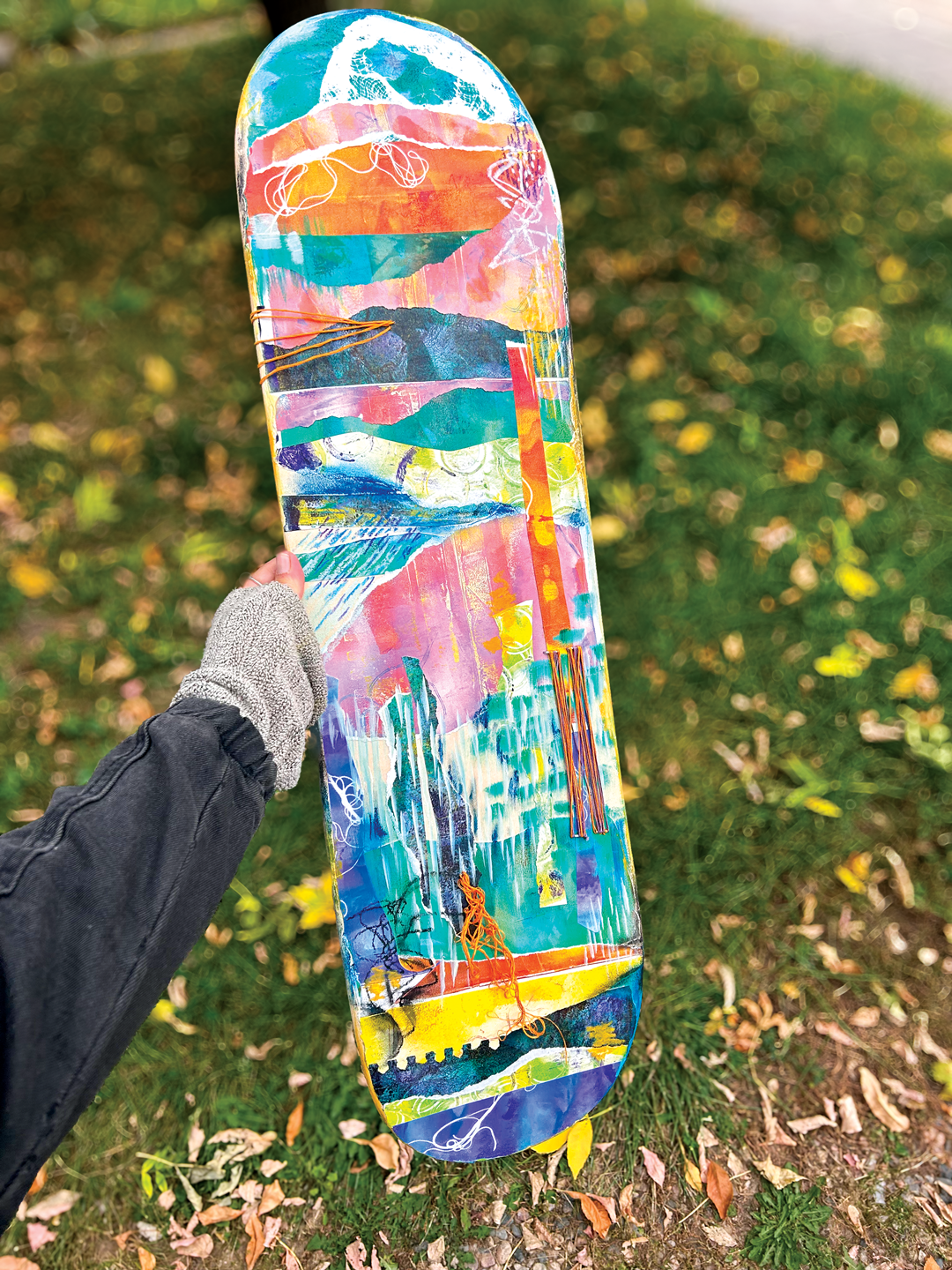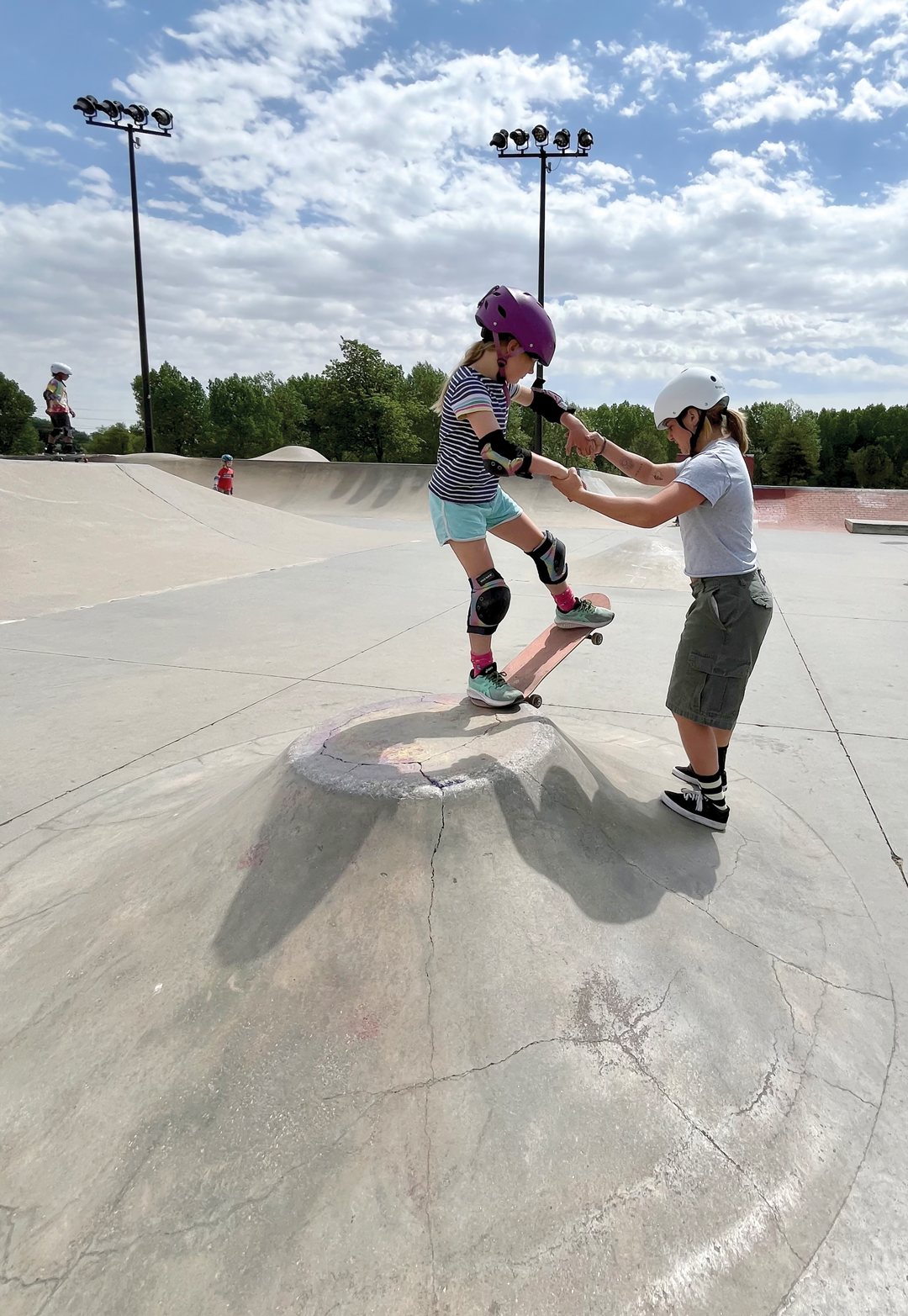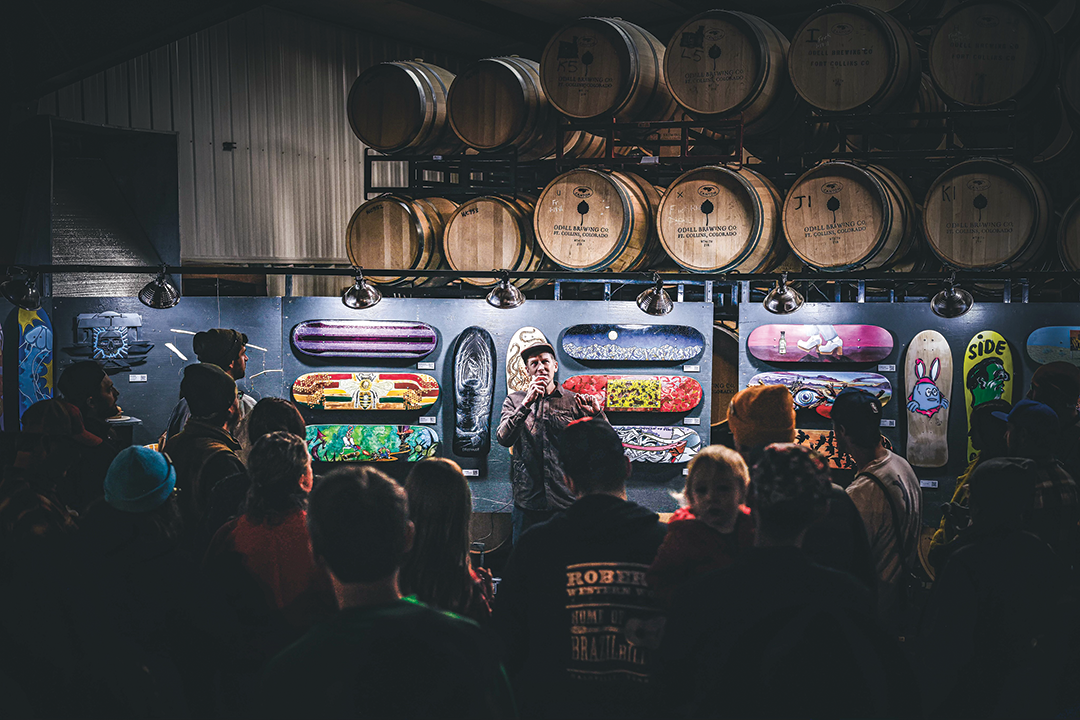Chelsea Gilmore has her own art studio, works with local schools to integrate art into classrooms and paints well-known murals in Fort Collins and beyond. But perhaps her favorite project of the year involves painting a skateboard.
The All Hands on Deck art show is an annual fundraiser for local skateboarding nonprofit, Launch: Community Through Skateboarding. Gilmore loves the show, both as an artist and one who appreciates others’ art, because of the quality of the show and the number of participants. She calls it an elite show, one of the best in Fort Collins and one that’s on par with the city’s best juried showings. And yet, the concept seems strange, even a little silly, for such a prestigious event: Artists are handed a skateboard and given the freedom to do whatever they want with it (as long as it’s family friendly).
“It’s very rare to have a lot of our artists together in one room,” Gilmore says. “It’s so cool to see what everyone’s done.”
Indeed, the show features more than 100 artists some years, mixing Fort Collins’ best makers with up-and-comers and part-timers as well as a few of the best graphic artists in the skateboarding industry. The show is so good that it makes Gilmore nervous to be in it despite her own impressive credentials. She eases the tension by allowing herself to experiment, an idea shared by most artists in the show.
“I always try to let it be a fun exploration of something new I’ve thought about or wanted to try,” Gilmore says.

Skateboard by Chelsea Gilmore.
Andy Weiss founded the organization, commonly called Launch Skate, in 2011 after growing up skateboarding and owning a Fort Collins skate shop for 15 years (the store, Market Skateshop, is still operating and is now owned by a good friend of his). Weiss grew up in a small town and didn’t like organized sports, but skating got him outside, kept him active and gave him a way to connect with his peers. It also gave him an identity.
No other sport has shaped its participants’ personas more than skateboarding. Before it became a mainstream activity supported by parks and recreation departments, it was a subculture of neon colors, wild haircuts, anti-establishment clothing and shoes suitable for punk rock. This launched the careers of pioneering graphic and tattoo artists, Weiss says, who sprayed their work over T-shirts, Vans shoes and, of course, skateboards.
Weiss needed an event to raise money for Launch Skate in its first year, as all nonprofits do, so he thought of the typical golf tournament before he took a look at his sport’s deep history in the arts. All Hands On Deck brings in money from patrons who attend it, bid on boards and eventually purchase them. The show is open to the public.
“Skateboarding has a lot of creatives involved with it,” Weiss says. “I think some even consider skateboarding more of an art form than a sport. An art show just made sense.”
Weiss leveraged his contacts with some of the top graphic artists in Fort Collins to create the boards, giving the first All Hands On Deck art show instant credibility, both among artists and the skating community. The show has raised more than $150,000 since it began in 2011.
“In those first few years, I leaned on friends,” Weiss says, “and the show gained a rep.”
Weiss eventually built an indoor skate park, organized after-school skate programs and created opportunities for skateboard lessons, camps and community building, in part because of the success of the art show.
He’s also advocated for skateboarding by lobbying parks and recreation departments for skate parks that are far better than the metal ramps that were installed in the late ‘80s. The organization’s main cause is to give kids like Weiss once was a place, activity and identity they can’t find in high school sports. Launch Skate will even buy boards for kids in underserved neighborhoods and work to ensure they have skate parks as nice as the ones in affluent areas.
“Our mission is very skate-focused,” Weiss says. “We want to empower young people to learn skateboarding.”
Chris Jones, a Launch Skate board member, skateboarder and artist, now curates the All Hands On Deck art show. His involvement over the last four years has helped give it even more credibility, Weiss says, because of his extensive connections to working and full-time artists who have embraced the challenge of using a skateboard as a canvas. The show rarely recruits artists anymore, Weiss says.
“A lot of times, we are approached to do a board,” Weiss says.

Launch Skatecamp counselor Lucy Heller assists camper Inga Steele-Idem at Northside Skatepark in Fort Collins.
Eri Matsumura lives in Fort Collins, works as a manager at Fort Collins Nursery and has a degree in fine art with a double concentration in fibers and painting from Colorado State University. Her fiber art makes her stand out: In 2019, when she first participated in All Hands On Deck, she embroidered her board, a process that took so long that she stressed a bit to get it done.
“The board is so narrow and long, and it bends a bit, so that is tough,” Matsumura says. “It’s just a totally different canvas to work with.”
Her job at the nursery keeps her busy, so she doesn’t create as much as she would like to. But occasionally she gets the urge. That’s another reason she appreciates the show.
“It’s nice to have a project,” she says. “It forces me to do it.”
As of press time, Matsumura, Gilmore and dozens of other artists were eagerly awaiting their boards to get started.
“We will get our boards in the next couple of weeks,” Gilmore says. “I have no idea what I will do.”

